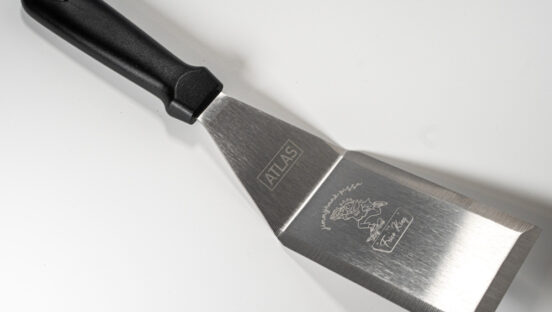As more states allow restaurants to reopen for dine-in services around the country, operators will have to navigate tricky waters. In the midst of the coronavirus pandemic, health and safety concerns abound for employees and customers alike, and insurance issues are likely to arise. To help answer some common questions about restaurant insurance, liability and COVID-19, we turned to Erik Josowitz, an analyst at InsuranceQuotes.com, which publishes in-depth studies, data and analysis related to health, business, auto, home and life insurance.
PMQ: How likely is it that a restaurant’s Business Interruption insurance will cover business losses due to the pandemic?
Josowitz: Following the SARS epidemic and other outbreaks in the early 2000s, most business insurance policies began to include language to exclude coverage for cases of communicable or infectious diseases. Business owners should review the language of their specific Business Interruption insurance policies but should expect to find these exclusions in place. In cases where these are not specifically excluded, insurance companies have still been denying Business Interruption insurance claims related to the COVID-19 pandemic. A number of lawsuits have been filed, and state legislation is being considered to attempt to compel insurance companies to cover these claims. If business owners have Business Interruption insurance policies that don’t specifically exclude coverage in cases of communicable or infectious diseases, they should make sure to document the specific financial impacts on their business prior to making a claim.
PMQ: Who is liable if an employee gets sick on the job with COVID-19?
Josowitz: Most businesses carry Workers Compensation (WC) insurance to cover instances where employees get injured or sick while performing their work. WC insurance will evaluate claims based on whether the injury or illness arose in the scope of employment and in conditions that are particular to the work being performed. For many restaurant employees, in cases of getting sick with COVID-19, it will be difficult to pinpoint the source of their illness and to indicate that it was a work-related injury.
PMQ: How can it be proven that the restaurant is responsible if/when an employee contracts COVID-19?
Josowitz: This is more a legal question than an insurance question. Proving when and where an employee contracted COVID-19 will be very difficult.
PMQ: Can restaurants be held responsible if a customer becomes ill with COVID-19?
Josowitz: For customers it will be even more difficult to prove where they contracted COVID-19. Many businesses will have liability insurance that may provide coverage if such claims are made against them.
PMQ: Will employees who have the option to return to work but don’t feel safe to do so still be eligible for unemployment benefits?
Josowitz: Unemployment insurance benefits are designed for employees who are terminated from their employment, not for those that leave voluntarily. The CDC framework indicates that bar and restaurant owners should train their employees on new safety procedures and offer flexible leave practices for employees as part of reopening. In the case of an employee that has the option to return to work but doesn’t feel safe doing so, they should first try to work out an accommodation with their employer. If they cannot work something out and decide to leave their job, though, they should not expect to receive unemployment insurance benefits.
PMQ: What if multiple employees at your restaurant contract the virus? What’s the potential fallout there?
Josowitz: The recently released CDC guidelines provide a framework for restaurant and bar owners to evaluate their readiness to reopen their operations. In addition to required actions to promote health and safety on the premises, they also provide information about ongoing monitoring of employee health. Business owners should have a procedure for evaluating employee health daily and develop plans for what to do if employees get sick. Employers are also asked to stay in communication with local authorities. They may have further questions or request additional actions if multiple employees become ill.
PMQ: If an employee comes in and says he/she is sick with the coronavirus, what’s the first step the owner should take?
Josowitz: If an employee says they have been diagnosed with COVID-19, employers should ask the employee to stay at home. Employers should develop plans for communication and action in cases where an employee is diagnosed. If employees think they may be infected but have not yet been diagnosed, employers should encourage them to stay at home, contact their doctor and follow their doctor’s orders regarding diagnosis and when to return to work.
 Erik Josowitz is an analyst at InsuranceQuotes.com—which publishes in-depth studies, data and analysis related to auto, home, health, life and business insurance—where he studies the insurance industry in order to provide trusted tips, advice and insights for consumers. A veteran of the tech and insurance industries, Erik also serves as the Senior Vice President of Technology & Strategy at AWL, the parent company of insuranceQuotes.com. Erik is a graduate of the University of Texas at Austin, and lives in Austin, where insuranceQuotes.com is based.
Erik Josowitz is an analyst at InsuranceQuotes.com—which publishes in-depth studies, data and analysis related to auto, home, health, life and business insurance—where he studies the insurance industry in order to provide trusted tips, advice and insights for consumers. A veteran of the tech and insurance industries, Erik also serves as the Senior Vice President of Technology & Strategy at AWL, the parent company of insuranceQuotes.com. Erik is a graduate of the University of Texas at Austin, and lives in Austin, where insuranceQuotes.com is based.













